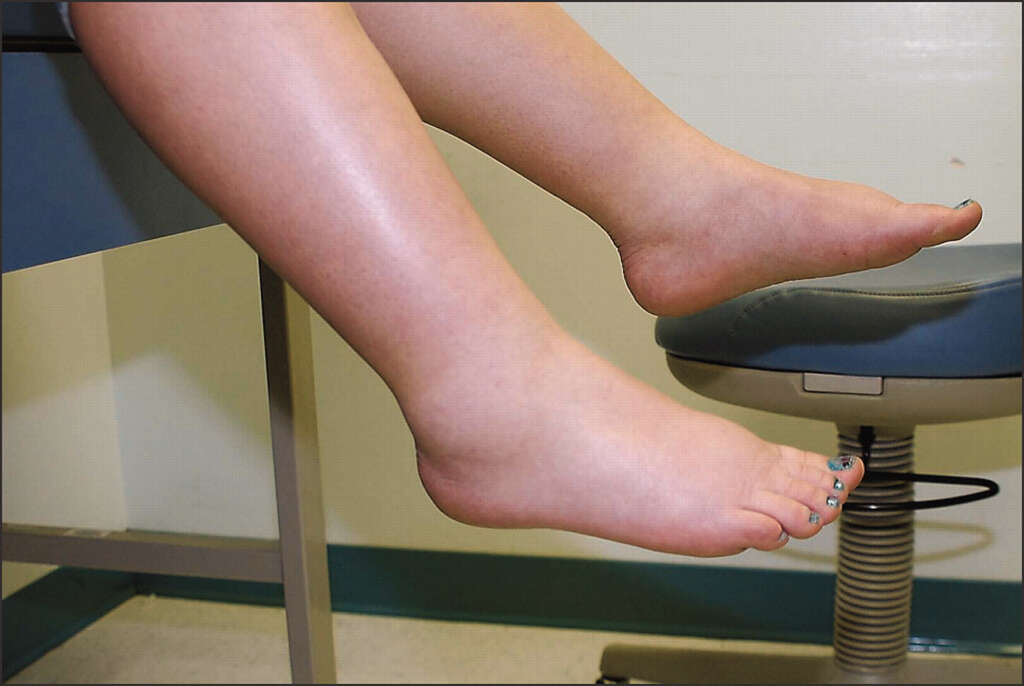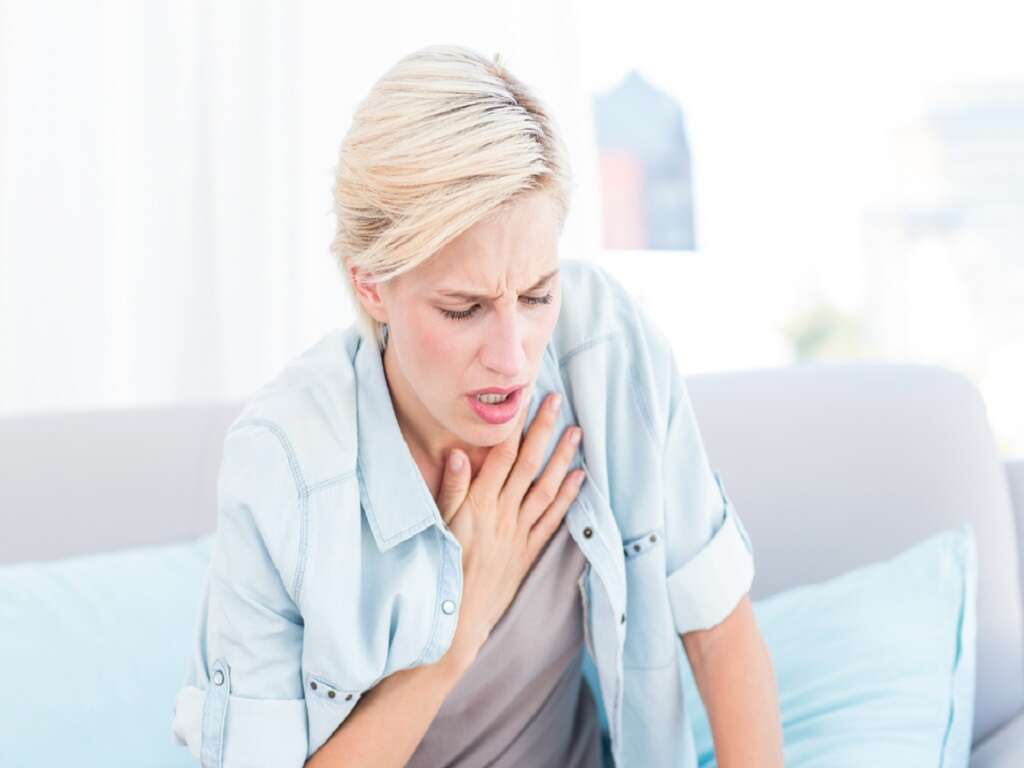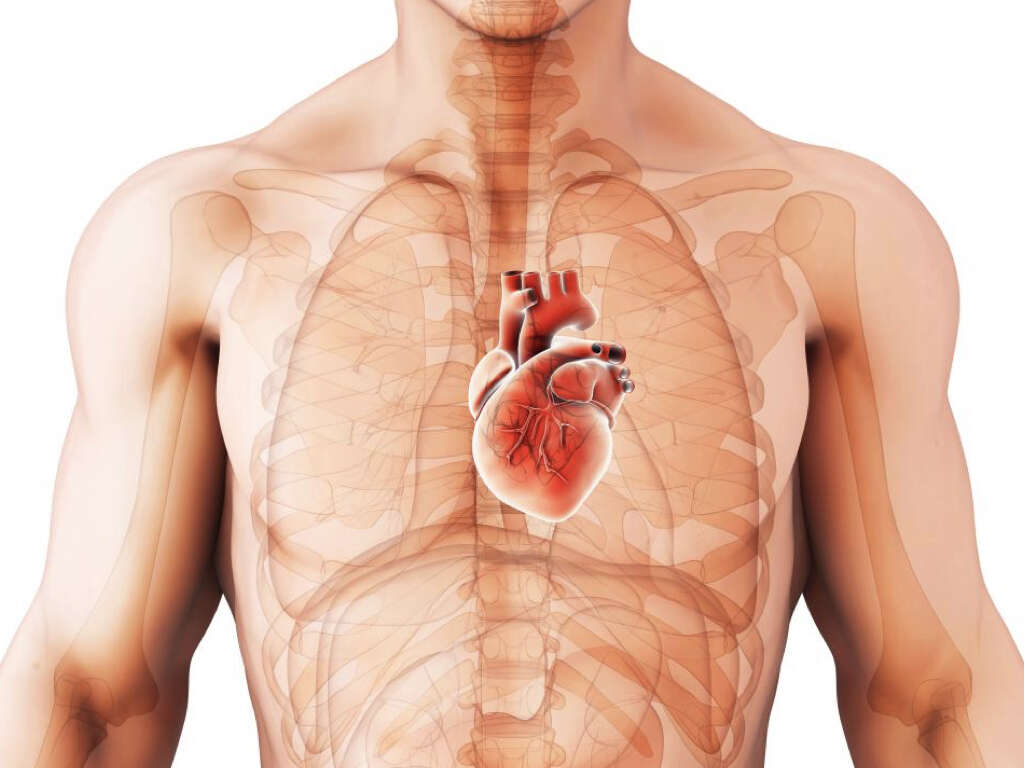10 Enlarged Heart Symptoms
An enlarged heart, also called cardiomegaly, is a condition caused by an underlying disorder that causes the heart to increase in size.
Cardiomegaly may be a hereditary condition. It may also develop if the heart is unable to pump adequate blood due to conditions like pregnancy, weakened heart muscle, heart valve issues, coronary heart disease, and thickening of heart muscles.
The heart enlarges in a quest to pump more blood and thereby transport enough oxygen and nutrients throughout the body. The condition can be temporary or chronic. Below are 10 symptoms of an enlarged heart.
Symptom #1: Chest Pain
Chest pain is usually associated with shortness of breath, another common symptom of nearly all cardiovascular problems. It is in fact rare to find a patient who complains of chest pain without shortness of breath. However, physicians should be aware that these are generally pulmonary symptoms and hence the need to check for any underlying cause.
Cardiomegaly decreases the efficiency of the heart in carrying out its functions. This leads to a decrease in its capability to pump blood to the whole body. Chest pain usually develops with exertion. For this reason, patients should provide their doctors with as much medical history as possible to aid in diagnosis.
Symptom #2: Tiredness or Fatigue
Fatigue is one of the most common symptoms of medical conditions including anemia, hypothyroidism, flu, heart problems, and other diseases. That is why fatigue alone is a nonspecific and unclear complaint. People who experience fatigue describe it as a decrease in the capacity or motivation to do things. It is usually associated with sleeping more and the feeling of weariness.
For people who suspect that their fatigue is due to a cardiac problem, they will feel tired when they do simple and ordinary activities. For example, if you can’t climb the stairs anymore and feel tired after a few steps, you may have a heart condition. Of course, fatigue is usually one of several other symptoms.

Symptom #3: Shortness of Breath
There are many cardiac conditions that may lead to shortness of breath. These include congestive heart disease, increased heart rate, pulmonary edema, and enlarged heart.
At first, you are unlikely to notice the symptoms of an enlarged heart until you experience shortness of breath. This is the first noticeable symptom for most patients of cardiomegaly. Patients feel breathless while doing normal activities such as walking to work or even to another room. Your heart and lungs are connected. They work together to deliver oxygen to your tissues and remove carbon dioxide from your system. A problem affecting either of the organs will definitely affect the other.
Symptom #4: Dizziness
Dizziness is another enlarged heart symptom that occurs in the initial stages of the disease. As mentioned elsewhere, your heart is not pumping enough blood. This causes a drop in blood pressure. The body no longer receives all the blood it needs for its many functions. Because this also affects the brain, the result is dizziness.
Most heart conditions such as cardiomegaly, heart failure, and heart attacks cause dizziness. Dizziness is also a symptom of iron deficiency anemia, inner ear diseases, low blood sugar, and other problems. This is why dizziness alone cannot be relied on as a sign of cardiomegaly.

Symptom #5: Irregular Heartbeat
Arrhythmia is the most dangerous symptom of cardiomegaly because it can cause death. Arrhythmia does not merely mean changes in heartbeats. It is not like the change that happens due to exercise or emotions such as stress. Arrhythmia means that the change in heartbeat has no apparent reason.
Some people think that arrhythmia means that your heart is going to beat faster. This is a common myth. Arrhythmia means a change such that your heart beats faster, known as tachycardia, or slower which is known as bradycardia. Cardiomegaly means that all the chambers of the heart are enlarged, although the source of arrhythmia may be the top chambers known as atria, or the bottom chambers called ventricles. It can also occur above the ventricles, in which case it is called supraventricular. An irregular heartbeat is a dangerous sign for which reason you should visit a doctor as soon as possible.
Symptom #6: Swelling in the Legs
Edema or swelling in the legs is one more of the most common enlarged heart symptoms. Other parts of the body including the abdomen may also get edema. The process of fluid collecting in any part of the body part is slow and depends on how enlarged the heart is.
Edema usually responds to medications. However, it is a serious problem that should be resolved holistically by addressing the underlying cause, not just treating the symptom. If you notice that your legs, abdomen, or chest are swelling, you should visit a medical facility for tests to determine the cause. This way treatment can commence before the problem worsens.

Symptom #7: Palpitations
In normal circumstances, you don’t notice your heartbeats. This is because your heart rhythm is near constant and in tune with your activities. Palpitations mean that your heartbeats are strong or rapid enough to be heard or noticed. So, if you feel that your heart skips some beats or pounds, you have palpitations.
If you get occasional palpitations but no other symptoms, do not worry. Most of us experience palpitations due to stress, anxiety, exercise, caffeine, smoking, hormonal changes, fever, low blood sugar, or agitation. These kinds of palpitations do not require treatment. However, if you have palpitations in addition to other symptoms like chest pain, shortness of breath, or edema, you need to undergo a checkup immediately.
Symptom #8: Fainting
Fainting is usually the direct result of dizziness. While dizziness is due to a decrease of blood reaching the brain, fainting is a sign that this decrease is so severe that the brain isn’t getting adequate nutrient- and oxygen-rich blood. While dizziness isn’t a life-threatening condition, fainting can be really dangerous because it can lead to injuries if the patient falls.
If you experience dizziness or fainting, you need to pay your doctor a visit for an examination. Most people forget to report dizziness and fainting, thinking that these are insignificant or not related. However, this is the wrong approach. If you have these symptoms, share them with your physician to assist making a diagnosis.

Symptom #9: Weight Gain
Patients with cardiomegaly may experience fluid retention. The accumulation of fluid in their bodies causes a progressive increase in weight over time.
The fluid buildup can be seen in many parts of the body like feet, legs, and even the abdomen.
Symptom #10: Discomfort in One or Both Arms
Pain in one or both arms is yet another of the top 10 enlarged heart symptoms. This is a classic symptom of heart problems, especially heart attacks and angina pectoris. However, if the patient only has cardiomegaly, discomfort in the arm, especially the left arm, may be the only symptom.
The source of the pain is usually the left side of the chest. The pain then moves to the arm. As mentioned elsewhere, cardiomegaly makes the heart weaker, not stronger. Some people think that it is a good thing to have a thick heart. However, it makes the heart less efficient in pumping blood to the tissues. If you feel discomfort in your arm in addition to any other of the symptoms of an enlarged heart, make a point to visit your doctor without delay.











